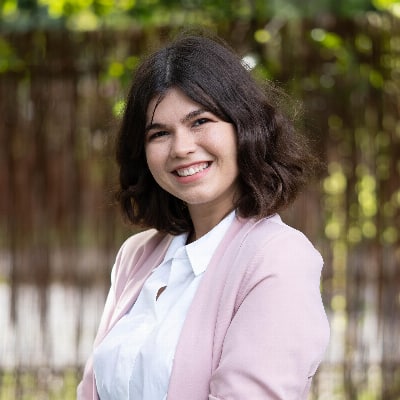EU-Mercosur trade deal relaunch brings back human rights, sustainability concerns
- EU leaders are pushing to ratify a long-stalled trade agreement between the EU and Mercosur countries
- But concerns over the deal's impact on human rights and the environment in Mercosur countries persist
- EU politicians and farmers expressed similar worries, fearing that their market would be flooded with cheaper imports
A window of opportunity is opening in Brussels to ratify a long-stalled trade agreement between the EU and Mercosur - the South American trade bloc comprising Argentina, Brazil, Paraguay, and Uruguay - after almost 25 years of negotiations.
On Wednesday (8 February), French Foreign Minister Catherine Colonna arrived in Brazil for a two-day visit, the latest in a cohort of EU leaders to have visited the South American country in the past month after newly reelected President Luis Inácio "Lula" da Silva took office on 1 January.
The rapprochement between European leaders and the Brazilian government could pave the way for the relaunch of the EU-Mercosur trade deal, which had been shelved since 2019. The free trade agreement (FTA) was put on hold due to environmental and human rights concerns raised by France and other EU countries during the mandate of far-right leader President Jair Bolsonaro.
The final push for its ratification could come from Spain, which will take over the EU Council Presidency in July and has listed the agreement with Mercosur as one of its top priorities.
However, the same challenges that led to the paralysis of the ratification process in 2019 persist nowadays. Deforestation in the Amazon rainforest reached a ten-year high in 2021, affecting biodiversity and the survival of indigenous peoples, a trend that Lula has vowed to reverse.
To address criticism from climate activists, who argue that the deal would boost the intensive agro-industrial model of Mercosur countries, Lula has nominated Marina da Silva - a renowned Amazon activist - as the country's environment minister. Meanwhile, the EU has suggested adding a legally binding component to the deal to clarify sustainability and human rights commitments.
The latest version of the agreement includes trade and sustainable development chapters (TSD), which typically outline the parties' commitments to human and labor rights, environmental protection, and compliance with international standards and conventions.
But it was only in June 2022 that a mechanism was established by the Commission to enforce these commitments, which includes the use of trade sanctions as a last resort in case of repeated breaches. This mechanism will be incorporated into all future EU trade agreements, but its inclusion in the already-negotiated Mercosur deal is still uncertain.
Experts slam neglect of indigenous and peasants' rights
Despite recent EU sustainability pledges, experts and activists argue that the implementation of the agreement would inevitably lead to a further expansion of agricultural production in Mercosur countries, fueling deforestation and land grabs.
Joao Rafael Brites, a sustainability expert working for How Good, a database that helps agri-food companies minimize their carbon footprint, expressed concern in an interview with S&P Global about the exclusion of indigenous peoples during the deal's negotiations. He argued that this makes addressing its shortcomings "a very difficult task" now and that the agreement is "deeply flawed" without their consent.
Brites also highlighted that not all farmers in Mercosur countries will benefit from the agreement, with large-scale agricultural producers and export-oriented monoculture crops, such as soybeans, emerging as the biggest winners.
Groups representing small farmers, including Via Campesina and the Coordinadora Latinoamericana de Organizaciones del Campo, recently issued a statement condemning the deal's promotion of corporate agri-business interests over those of small-scale food producers.
The statement points out that the final deal makes no mention of the United Nations Declaration on the Rights of Peasants (UNDROP), claiming that these rights "are structurally violated" by the FTA.
"Our governments say that this agreement contains sustainability provisions and takes into account the interests of workers and farmers," reads the statement. "They support the interests of an elite industrial food industry, which is responsible for the ecological disaster in our communities."
However, Brites believes that Lula would not move forward with the current version of the agreement, which was rubberstamped by Bolsonaro's government. Other Mercosur countries have also expressed its intention to revisit the deal.
"I think that's where the promise for a better, fairer, and more sustainable trade agreement is made possible because you're consulting the affected parties," he told S&P Global.
EU agri-food sector echoes concerns
EU politicians and farmers have expressed similar worries. In a recent sit-down with S&P Global, Spanish Member of the European Parliament (MEP) Clara Aguilera (S&D), the socialist leader at the Parliament's Agriculture Committee, complained that EU agricultural producers have "a lot of uncertainty" about the deal's ratification.
The EU's farming sector fears the EU market would be flooded with cheaper imports from Mercosur agriculture giants Brazil and Argentina, produced under worse environmental and social conditions. "We cannot be so naive and try to fight climate change only from Brussels," said Aguilera.
To address these concerns, Aguilera emphasized the need for the EU to change its trade policies and establish deals with countries that uphold similar production standards. "I will be very much in favor of new agreements signed as long as they require equivalent environmental or social standards," she told S&P Global.
The Spanish politician also pointed out that this demand is coherent with the sustainability ambitions of the European Green Deal and the Farm to Fork Strategy and would prevent unfair competition in the EU. "We don't intend to change the world from Europe. I know it may sound paternalistic, but if we are strict here and impose more demanding regulations (...), we must make sure that they are complied with elsewhere as well," she concluded.
This article was published by S&P Global Commodity Insights and not by S&P Global Ratings, which is a separately managed division of S&P Global.

